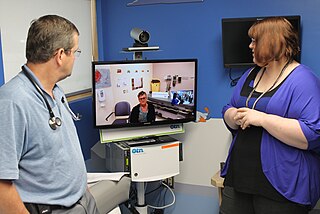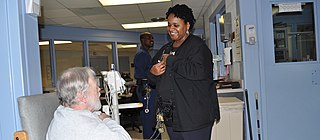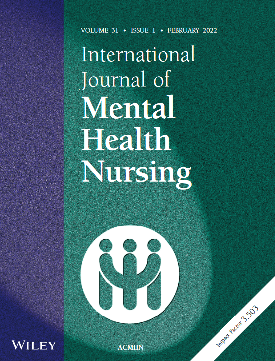
Health economics is a branch of economics concerned with issues related to efficiency, effectiveness, value and behavior in the production and consumption of health and healthcare. Health economics is important in determining how to improve health outcomes and lifestyle patterns through interactions between individuals, healthcare providers and clinical settings. In broad terms, health economists study the functioning of healthcare systems and health-affecting behaviors such as smoking, diabetes, and obesity.

Mental health encompasses emotional, psychological, and social well-being, influencing cognition, perception, and behavior. It likewise determines how an individual handles stress, interpersonal relationships, and decision-making. Mental health includes subjective well-being, perceived self-efficacy, autonomy, competence, intergenerational dependence, and self-actualization of one's intellectual and emotional potential, among others.From the perspectives of positive psychology or holism, mental health may include an individual's ability to enjoy life and to create a balance between life activities and efforts to achieve psychological resilience. Cultural differences, subjective assessments, and competing professional theories all affect how one defines "mental health". Some early signs related to mental health difficulties are sleep irritation, lack of energy, lack of appetite and thinking of harming yourself or others.

The Royal College of Nursing (RCN) is a registered trade union in the United Kingdom for those in the profession of nursing. It was founded in 1916, receiving its royal charter in 1928. Queen Elizabeth II was the patron until her death in 2022. The majority of members are registered nurses; however student nurses and healthcare assistants are also members. There is also a category of membership, at a reduced cost, for retired people.

Telenursing refers to the use of information technology in the provision of nursing services whenever physical distance exists between patient and nurse, or between any number of nurses. As a field, it is part of telemedicine, and has many points of contacts with other medical and non-medical applications, such as telediagnosis, teleconsultation, and telemonitoring. The field, however, is still being developed as the information on telenursing isn't comprehensive enough.
Nurse education consists of the theoretical and practical training provided to nurses with the purpose to prepare them for their duties as nursing care professionals. This education is provided to student nurses by experienced nurses and other medical professionals who have qualified or experienced for educational tasks, traditionally in Nursing schools. Most countries offer nurse education courses that can be relevant to general nursing or to specialized areas including mental health nursing, pediatric nursing and post-operatory nursing. Courses leading to autonomous registration as a nurse typically last four years. Nurse education also provides post-qualification courses in specialist subjects within nursing.
Psychiatric nursing or mental health nursing is the appointed position of a nurse that specialises in mental health, and cares for people of all ages experiencing mental illnesses or distress. These include: neurodevelopmental disorders, schizophrenia, schizoaffective disorder, mood disorders, addiction, anxiety disorders, personality disorders, eating disorders, suicidal thoughts, psychosis, paranoia, and self-harm.
Nursing assessment is the gathering of information about a patient's physiological, psychological, sociological, and spiritual status by a licensed Registered Nurse. Nursing assessment is the first step in the nursing process. A section of the nursing assessment may be delegated to certified nurses aides. Vitals and EKG's may be delegated to certified nurses aides or nursing techs. It differs from a medical diagnosis. In some instances, the nursing assessment is very broad in scope and in other cases it may focus on one body system or mental health. Nursing assessment is used to identify current and future patient care needs. It incorporates the recognition of normal versus abnormal body physiology. Prompt recognition of pertinent changes along with the skill of critical thinking allows the nurse to identify and prioritize appropriate interventions. An assessment format may already be in place to be used at specific facilities and in specific circumstances.
In the United States, a psychiatric-mental health nurse practitioner (PMHNP) is an advanced practice registered nurse trained to provide a wide range of mental health services to patients and families in a variety of settings. PMHNPs diagnose, conduct therapy, and prescribe medications for patients who have psychiatric disorders, medical organic brain disorders or substance abuse problems. They are licensed to provide emergency psychiatric services, psychosocial and physical assessment of their patients, treatment plans, and manage patient care. They may also serve as consultants or as educators for families and staff. The PMHNP has a focus on psychiatric diagnosis, including the differential diagnosis of medical disorders with psychiatric symptoms, and on medication treatment for psychiatric disorders.
The American Nurses Credentialing Center (ANCC), a subsidiary of the American Nurses Association (ANA), is a certification body for nursing board certification and the largest certification body for advanced practice registered nurses in the United States, as of 2011 certifying over 75,000 APRNs, including nurse practitioners and clinical nurse specialists.
A registered psychiatric nurse (RPN) specialises in a field of nursing that focuses on the mental health of patients. Psychiatric nurses assist the interdisciplinary team in the assessment and treatment of the patient's psychiatric illness and symptoms. They treat a variety of mental health disorders such as bipolar, depression, schizophrenia, anxiety, substance abuse addiction and eating disorders such as bulimia and anorexia. However, they do not diagnose the patient, this is the responsibility of a qualified psychologist or a psychiatric doctor. Psychiatric nurses are in charge of dispensing medication and the overall care of patients. Registered psychiatric nurses work under the supervision of doctors’ and they practice within the health care industry, mostly in mental health clinics, outpatient facilities, mental health agencies, long-term care centres or hospitals.

Nursing is a profession within the healthcare sector focused on the care of individuals, families, and communities so they may attain, maintain, or recover optimal health and quality of life. Nurses may be differentiated from other healthcare providers by their approach to patient care, training, and scope of practice. Nurses practice in many specialties with differing levels of prescription authority. Nurses comprise the largest component of most healthcare environments; but there is evidence of international shortages of qualified nurses. Nurses collaborate with other healthcare providers such as physicians, nurse practitioners, physical therapists, and psychologists. Unlike nurse practitioners, nurses typically cannot prescribe medications in the US. Nurse practitioners are nurses with a graduate degree in advanced practice nursing. They practice independently in a variety of settings in more than half of the United States. Since the postwar period, nurse education has undergone a process of diversification towards advanced and specialized credentials, and many of the traditional regulations and provider roles are changing.
Kevin Joseph Michael Gournay CBE FMedSci FRCN FRSM FRCPsych (Hon) PhD RN CSci Cert CBT is a registered psychologist, chartered scientist and a registered nurse by background. He is an emeritus professor at the Institute of Psychiatry, King's College London. He was a consultant psychologist at the Priory Hospital North London; retiring in December 2018. He has now returned to clinical work as part of the response to COVID19. He is currently an Honorary Professor at the Matilda Centre; University of Sydney., where his work focusses on the impact of COVID19 on mental health and the combination of mental health problems and substance use. He has been responsible over many years for a very wide range of research, policy and practice development in mental health care. He also works as an Expert Witness; he has provided reports on more than 300 suicides; 20 homicides and hundreds of reports on people who have suffered the consequences of traumatic events, including accidents, terrorist related incidents, natural disasters, war related events and stillbirth and perinatal death. He has also provided numerous reports on patients receiving care and treatment in high secure and Medium secure settings, including Broadmoor, Rampton and Ashworth hospitals
Annie Therese Altschul, CBE, BA, MSc, RGN, RMN, RNT, FRCN was Britain's first mental health nurse pioneer; a midwife, researcher, educator, author and a patient advocate, emeritus professor of nursing.
The nursing organization workplace has been identified as one in which workplace bullying occurs quite frequently. It is thought that relational aggression are relevant. Relational aggression has been studied amongst girls but rarely amongst adult women. According to a finding, 74% of the nurses, 100% of the anesthetists, and 80% of surgical technologists have experienced or witnessed uncivil behaviors like bullying by nursing faculty. There have been many incidents that have occurred throughout the past couple of years. OSHA, which stands for “Occupational Safety and Health Administration” stated that from 2011 to 2013, the United States healthcare workers experienced 15,000 to 20,000 significant injuries while in the workplace.
A Mental Health Nurse (MHN) refers to a psychiatric nurse in the UK, who specialises in the care of patients with mental health issues.

Correctional nursing or forensic nursing is nursing as it relates to prisoners. Nurses are required in prisons, jails and detention centers; their job is to provide physical and mental healthcare for detainees and inmates. In these correctional settings, nurses are the primary healthcare providers. These nurses also work with victims and assist in expert witness testimonies and are involved in a variety of legal cases including paternity disputes and workplace injuries.

The Journal of Psychosocial Nursing and Mental Health Services is a monthly peer-reviewed nursing journal for psychosocial and mental health nurses. It includes sections on psychopharmacology, mental health care of older adults, addictive behaviors and diagnoses, and child/adolescent disorders and issues. The editor-in-chief is Mona Shattell. The journal was established in 1963 and published bimonthly. In 1978, the publication frequency increased to monthly.

The International Journal of Mental Health Nursing (IJMHN) is a bimonthly peer-reviewed medical journal covering psychiatric and mental health nursing. It is published by Wiley and is the official journal of the Australian College of Mental Health Nurses.

The COVID-19 pandemic has impacted healthcare workers physically and psychologically. Healthcare workers are more vulnerable to COVID-19 infection than the general population due to frequent contact with infected individuals. Healthcare workers have been required to work under stressful conditions without proper protective equipment, and make difficult decisions involving ethical implications. Health and social systems across the globe are struggling to cope. The situation is especially challenging in humanitarian, fragile and low-income country contexts, where health and social systems are already weak. Services to provide sexual and reproductive health care risk being sidelined, which will lead to higher maternal mortality and morbidity.









